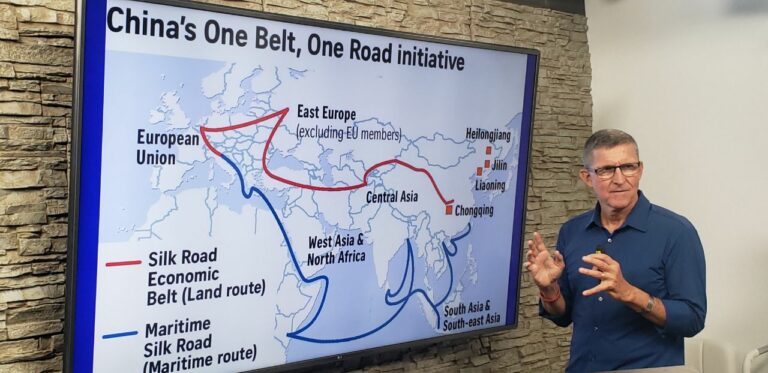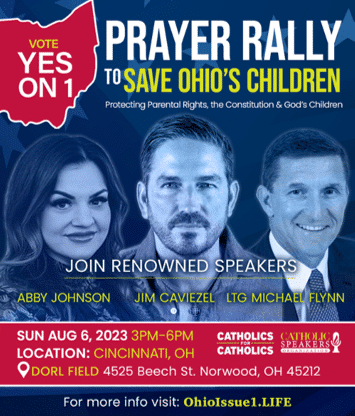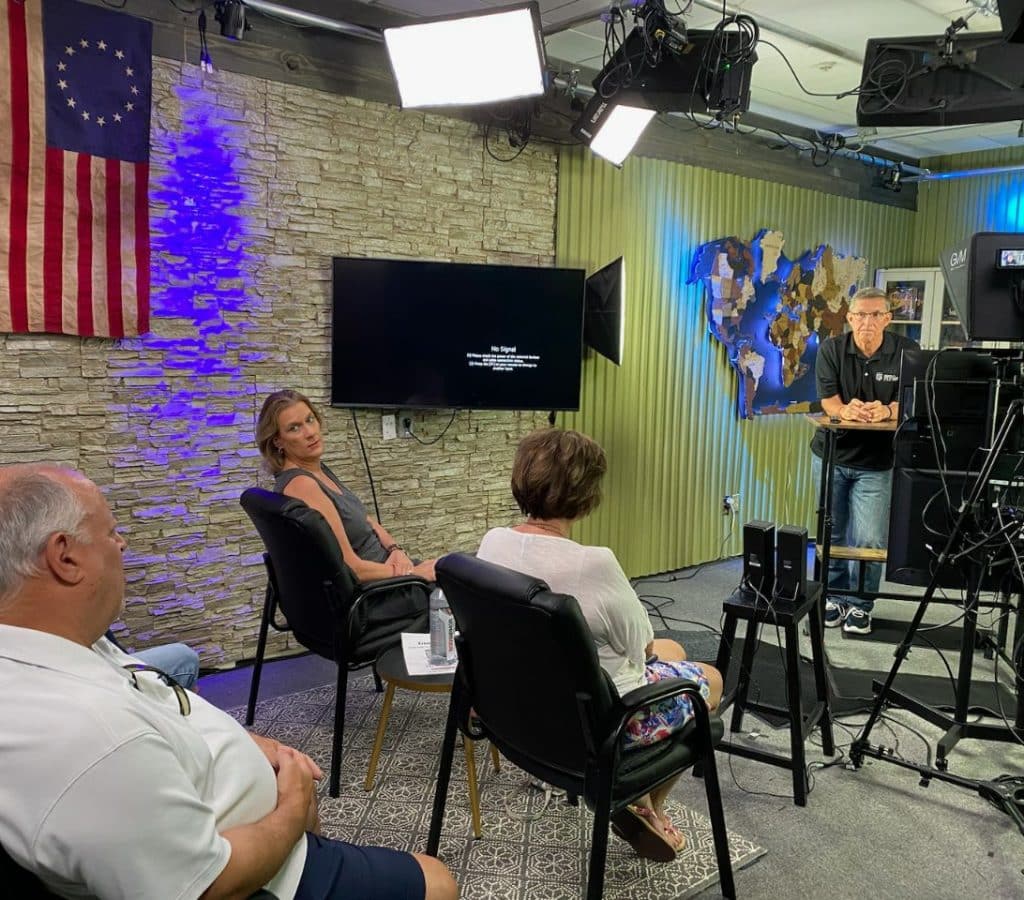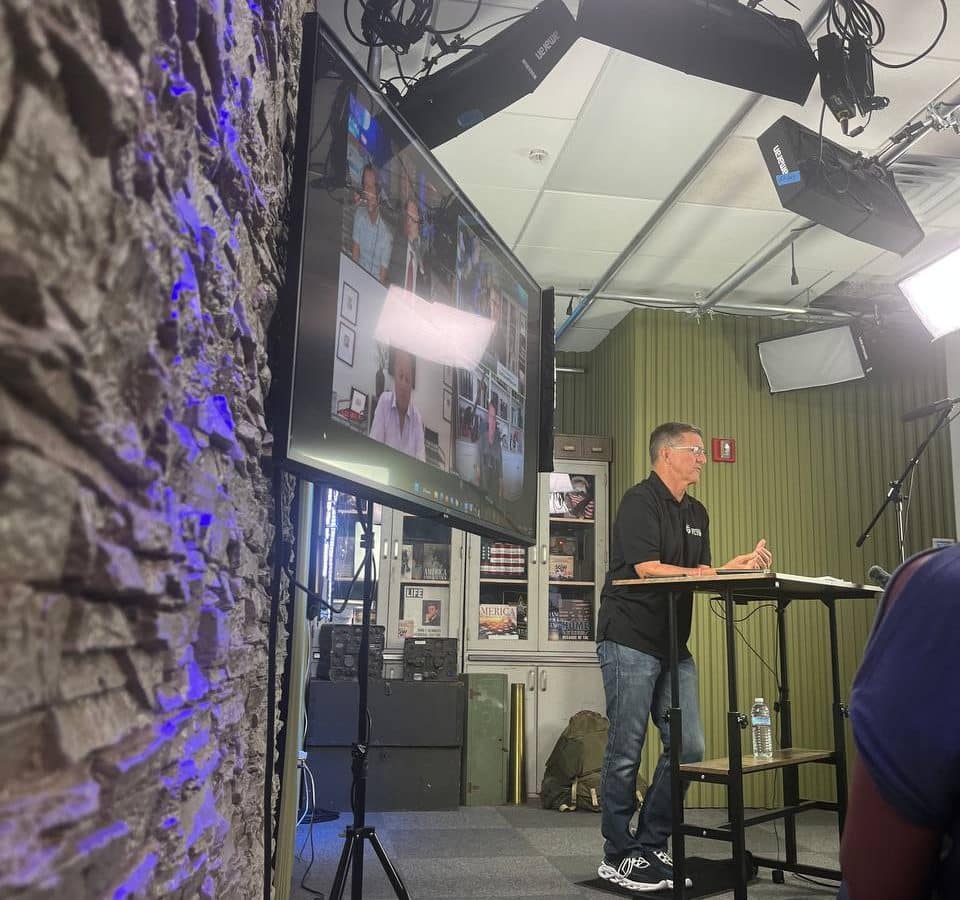
Fifth-generation warfare (5GW) is a concept that is characterized by a blurring of lines between war and politics, combatants, and civilians. In 5GW, the actors involved are often diffuse and can involve non-state or transnational actors, making it more challenging to clearly define who or what is the enemy. The aim of 5GW is typically to manipulate the adversary’s perception of reality, using methods to confuse, mislead, and ultimately achieve the strategic objective without the adversary even realizing that they are at war. It could be seen as warfare by stealth and indirection, with a focus on influencing thought and information.
In the rapidly evolving landscape of global power structures, pervasive digital interconnectivity, and AI-driven psychological programming, a powerful 5GW tactic has emerged: “asymmetrical political warfare.” The American public has found itself in the crosshairs of unseen influence from non-state actors in the form of multinational corporations, which encompasses an intricate array of foreign manipulations to erode the bedrock of free society. As with most elements and methods of 5GW, most Americans have never conceptualized asymmetrical political warfare. In this paradigm, less potent actors leverage non-conventional, covert strategies to exploit their stronger opponent’s political vulnerabilities. We are at war and this manner of conflict blurs the traditional delineations of warfare, introducing a nonlinear facet and complicating its detection and mitigation.
From the nuances of fifth-generation warfare come the pitfalls of foreign-influenced corporatocracies. Asymmetrical political warfare presents a formidable challenge to modern societies, particularly those like the United States. It is clandestine by nature and intricate in its composition, making it an incredibly complex tool for our adversaries. Addressing it requires a thorough understanding of its components and recognizing the difference between healthy capitalist competition and the concentrated power of a corporation are vital.
The distinction between an accurate definition of capitalism and a properly defined corporatocracy is often misinterpreted. Capitalism is a free-market economic system championing competition and individual enterprise, and corporatocracy, where corporations or corporate elites exercise considerable political and economic influence. In a thriving capitalist society, businesses of all sizes compete fairly, nurturing innovation and fueling economic growth. However, when power is concentrated within a few large corporations, the landscape shifts towards a corporatocracy. Here, the competitive equilibrium is disturbed, often favoring monopolistic inclinations, reducing competition, encouraging political corruption, and prioritizing corporate interests over public well-being.
In a military context, “asymmetrical” often refers to warfare where the two sides involved have unequal resources or capabilities. In an asymmetrical conflict, one side might have a larger and more technologically advanced military, while the other side uses guerrilla tactics, unconventional strategies, or cyber warfare. This imbalance forces the less powerful side to develop innovative strategies to counteract the greater power’s advantages. This form of warfare can be more nuanced than traditional combat, extending into the realms of economic, political, and psychological operations. Psychological operations (PSYOP) are used to undermine morale or win over neutral parties.
While the concept of asymmetrical political warfare has been around for quite some time, it has gained renewed attention due to conflicts involving non-state actors. These non-state actors are entities that participate or interfere in international relations and may or may not be governed or controlled by a centralized government. Some non-state actors secretly do the bidding of an undisclosed nation. Non-state actors include organizations such as terrorist groups, non-governmental organizations (NGOs), and multinational corporations.
Political warfare employs non-military means to achieve political, ideological, or strategic objectives. Therefore, when we discuss asymmetrical political warfare, we refer to a conflict in which one side possesses unequal political resources or capabilities. This often arises when one nation lacks political control over another. The foreign country, in response, must devise alternative methods, short of direct military action, to establish political influence or neutralize the political strength of a nation to weaken it. Strategically they use this tactic to destabilize or overthrow a government. This form of warfare amplifies the undermining of an opponent’s political system by financing lawfare and supporting one or more PSYOP objectives. It uses influential leaders, groups, or power brokers to propagate programs that support ideological shifts. Often, these actions extend to meddling in elections or other political activities. This kind of strategy leverages societal or ideological vulnerabilities, it is the political aspect of asymmetrical warfare and in the realm of fifth-generation warfare, asymmetrical political warfare plays a prominent role.
In the contemporary manifestations of 5GW it’s fundamental to illuminate the intersection of warfare and influence. Asymmetrical political warfare has become increasingly prevalent in recent years, with the digital revolution and artificial intelligence often providing a novel catalyst. One potent influence strategy converges at the intersection of fifth generation warfare, and corporatocracies manipulated by foreign entities.
In 5GW, actors employ psychological manipulation and media propaganda tactics to distort their adversary’s reality. The use of multinational corporations is often preferred to cloak the true source of these actions. A stark example of this is the cult-like corporate promotion of Environment Social Governance (ESG), Diversity Equity and Inclusion (DEI) and mostly the Corporate Equality Index (CEI) campaigns that are covertly aimed at influencing public sentiment, a pillar of decision-making, to attack America’s ideological norms. These non-linear warfare methods are designed to segment the people of the country to develop astroturfing campaigns, cause conflict and remove unity by destroying national identity. Astroturfing refers to a type of advocacy typically in favor of a political, organizational, or corporate agenda designed to give the appearance of a grassroots movement. The goal is to make it seem as though the position of the advocator reflects the widespread, collective agreement of many individuals, when in reality, it is the viewpoint of a small, concentrated influential entity. The term “astroturfing” is a play on the concept of “grassroots” movements, which are organically grown and driven by the community while “Astroturf” is fake, symbolizing the inauthentic or artificial nature of these campaigns. These fake campaigns are used to focus social disruption and destabilize the nation. The adversary knows if they can get the public fighting it will cause political disruption and if they can get a few to accept new norms, they can use the situation to get them to accept more.
Major asset management firms like Vanguard and BlackRock, which have significant ties to the Chinese government, exercise considerable influence over multinational corporations. This connection has led these firms to indirectly import practices reminiscent of China’s social credit system into the United States, establishing programs akin to corporate-backed social credit scores. This trend is an instance of asymmetrical political warfare, which has foreign influence at its core and operates freely without explicit governmental regulation or oversight. These multinational corporations have been co-opted to advance a political objective. They are the powerbrokers used to propagate messages and programs to support ideological shifts by leveraging people’s jobs to influence their behavior. Thus, satisfying a PSYOP plan to affect the political environment.
These asset management giants also hold substantial stakes in entertainment, social media, and news corporations, which are used to propagate narratives favorable to foreign influences. Amid this dynamic, the foreign influenced political establishment in the United States—referred to as the ‘Uniparty’—is acquiescing to this influx of foreign corporate influence. Many Americans are increasingly wary of this situation and feel deceived. However, there’s often a gap between this sense of unease and the citizenry’s ability to articulate or fully comprehend the intricate mechanisms and the foreign intentions that are secretly at play. This discrepancy further complicates the situation, as it impedes a collective response to these challenges.
*Keep an eye out for part two next week.
General Flynn | Are Klaus Schwab & His Daughter Nicole Schwab Teaming Up to Push “The Great Reset” / Climate Change Agenda? + “What to Do With Billions of Useless Humans?” – Yuval Noah Harari
Upcoming Events

Updates
Subscribe to General Flynn on Twitter @GenFlynn. Soon we’ll be announcing how subscribers can request to be audience members and watch live tapings of General Flynn’s podcasts.
Contact [email protected]




